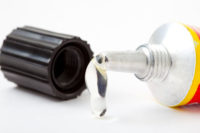Tetra Pak unveils new electron beam package sterilization technology

In a ground-breaking first for the beverage carton industry, Tetra Pak (tetrapak.com), launched a filling machine that uses electron beams, not hydrogen peroxide, to sterilize packaging material. The Tetra Pak® E3, on display at the Fispal Technologia International Trade Show in São Paulo, Brazil, promises a range of benefits to customers; not least the potential to run up to 40,000 portion packages per hour. Compared with the existing Tetra Pak A3/Speed platform, Tetra Pak E3 machines will also provide lower operational costs, improve environmental performance and increase production flexibility.
At the heart of the new machine is the eBeam sterilization technology that was developed by Tetra Pak in collaboration with COMET, a world leading company in high-voltage and high-vacuum technology. The technology works by focusing a controlled beam of electrons onto the surface of packaging material as it runs through the filling machine, killing any bacteria or micro-organisms present.
“This is a very exciting development; Tetra Pak E3 not only delivers significant cost and environmental benefits to our customers, it also marks the start of a new era in the world of carton packaging,” says Charles Brand, executive vice president of product management and commercial operations at Tetra Pak. “The efficiency and effectiveness of filling equipment has just taken a major step forward.”
The use of eBeam removes a long-time physical limitation to carton packaging speed: the hydrogen peroxide sterilization process. With eBeam, speeds of up to 40,000 portion packs per hour, or 11 packs every second, can be achieved—and market tests have shown this increased capacity can save beverage manufacturers as much as 20 percent in operational costs.
Replacing hydrogen peroxide in packaging material sterilization also significantly improves environmental performance, making water recycling easier, lowering energy consumption and cutting waste. Furthermore, the modular design of the Tetra Pak E3 platform offers increased production flexibility to manufacturers.
The machine shown at Fispal is a Tetra Pak E3/Speed that will be commercially available starting from 2016. The machine produces family packages of Tetra Brik® Aseptic 1000 Edge with LightCap™ 30, running at 15,000 packs per hour.
Looking for a reprint of this article?
From high-res PDFs to custom plaques, order your copy today!







